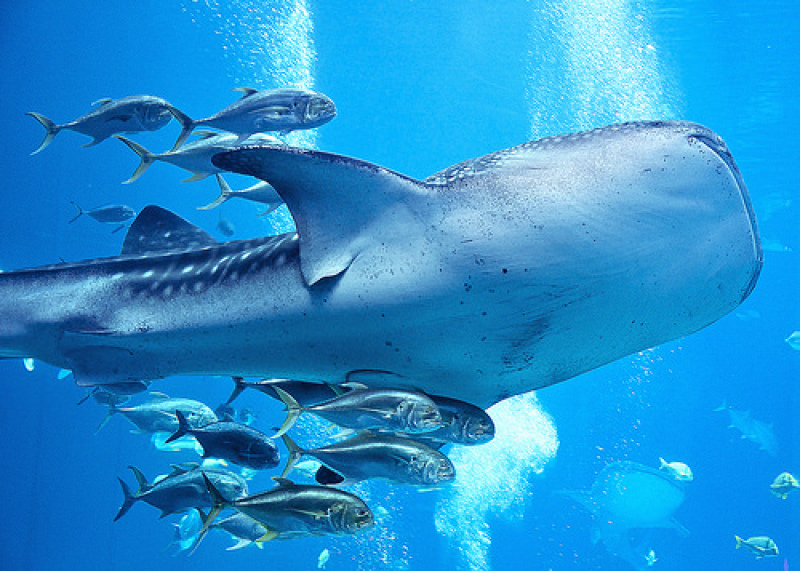
Two government-backed environmental organizations launched regulations aimed at protecting whale sharks from potentially dangerous methods used by commercial tuna fishing fleets, Science Daily reported.
According Inter-American Tropical Tuna Commission (IATTC) and the National Oceanic and Atmospheric Administration (NOAA), the large marine animals oftentimes get caught in the nets of fishing boats operating in the Eastern Pacific Ocean.
This is because tuna are known for gathering around large objects floating in the ocean. Fishermen take advantage of this behavior by deploying artificial structures known as fish-aggregating devices (FADs) to attract the animals. They then launch nets around the FADs to catch the tuna.
However, due to the size and slow movement of whale sharks, tuna sometimes congregate around them too. Like the technique used with FADs, fishermen also lower nets on whale sharks to catch the tuna swimming around them. This method could either kill or injure the large animals.
In response, the IATTC passed a resolution that criminalizes the practice of launching nets near whale sharks to catch tuna.
"[Commercial tuna fishing operators] shall prohibit their flag vessels from setting a purse seine [net] on a school of tuna associated with a live whale shark, if the animal is sighted prior to the commencement of the set," the IATTC wrote in the resolution.
If a whale shark gets accidentally caught in the net of the fishing vessel, the operators should conduct the necessary steps to ensure that the animal is released safely.
The IATTC noted that U.S.-based commercial fishing companies do not practice this tuna-catching technique. Despite this, NOAA drafted a regulation requiring fishing fleets to comply with IATTC's rules to ensure the protection of whale sharks.
"These are some of the most incredible animals in the ocean," NOAA's Fishery Policy Analyst Chris Fanning said about whale sharks in a statement.
"While U.S. fishing vessels don't engage in this practice, we are very supportive of this international resolution to help protect these amazing creatures," he added.


















